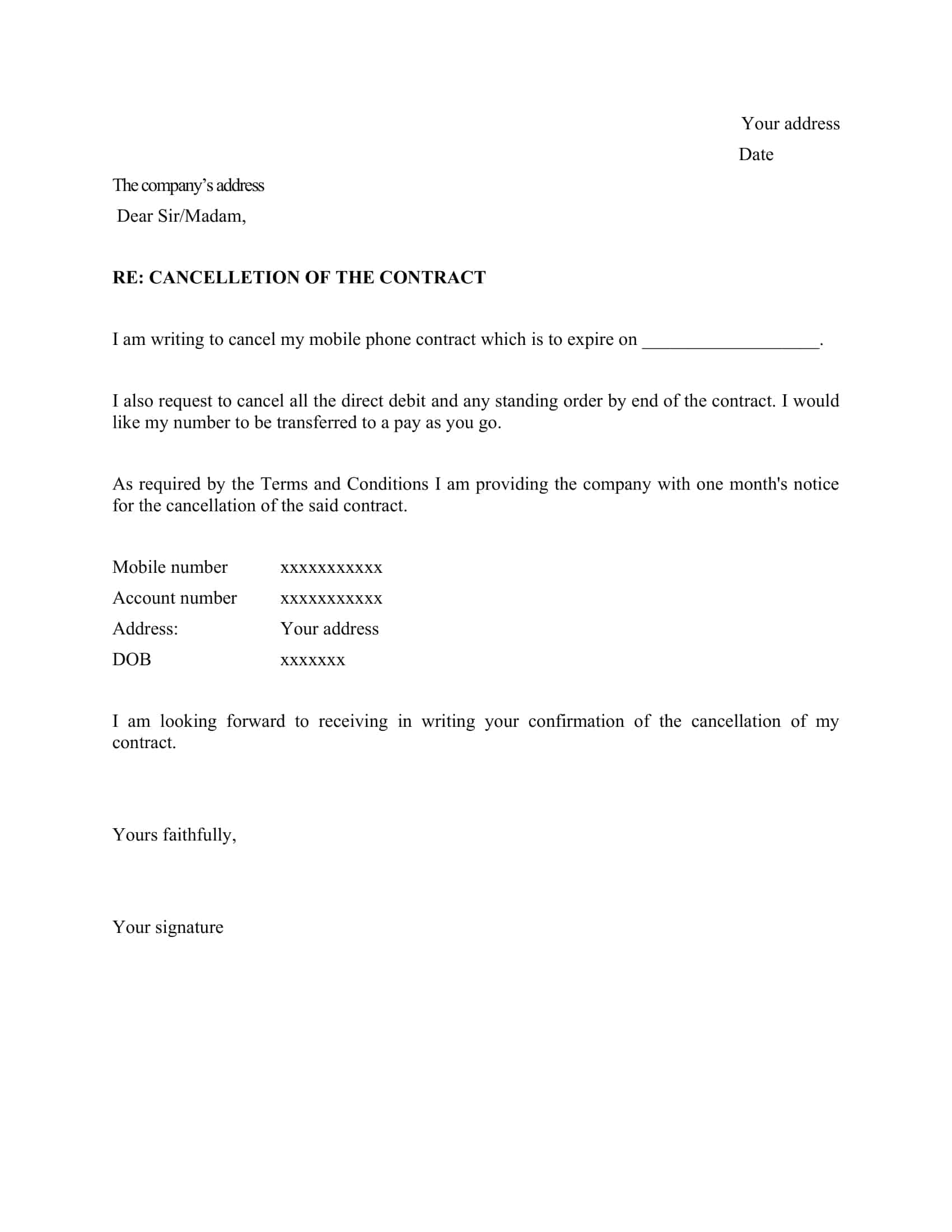Ending Vendor Relationships: The Power of a Cancellation Letter

Ever found yourself trapped in a vendor agreement that no longer serves your needs? Whether it's a software subscription that's become redundant or a service provider who isn't meeting expectations, knowing how to formally sever ties is crucial. A well-written vendor service cancellation letter is your key to a clean break, protecting you from unwanted charges and future disputes.
Navigating the process of canceling a service with a vendor can feel daunting. From understanding contract terms to ensuring proper notification, there are many steps to consider. This article serves as your comprehensive guide to crafting effective cancellation letters, outlining best practices, common pitfalls, and even providing examples to help you confidently terminate unwanted services.
The need to cancel a vendor service can arise for numerous reasons. Perhaps you've found a more cost-effective alternative, the quality of service has declined, or your business needs have simply evolved. Regardless of the reason, a formal letter of cancellation is essential. It provides a documented record of your intent to terminate the agreement, helping avoid misunderstandings and potential legal complications.
Historically, formal written communication has been the standard for important business transactions, including contract terminations. While a quick email or phone call might seem sufficient in today's fast-paced world, a formal letter carries more weight. It demonstrates professionalism and provides a clear, undeniable record of your request, protecting your interests in the long run.
A clearly written vendor termination letter is important for several reasons. It prevents automatic renewals and unwanted charges, clarifies the end date of the service, and helps maintain a professional relationship, even when ending a business partnership. This documentation can also prove crucial in resolving any future disputes regarding the termination.
A vendor cancellation letter should clearly state your intention to terminate the service, referencing the specific contract or agreement number. It should include the effective date of cancellation, your contact information, and a request for confirmation of cancellation. For example, "This letter serves to formally cancel our contract for [Service Name], agreement number [Agreement Number], effective [Date]."
Benefits of a formal cancellation letter include: preventing automatic renewals and unexpected charges; establishing a clear termination date, avoiding ambiguities; and serving as proof of your intent to cancel should any disputes arise.
Steps to write an effective letter: 1. Review your contract for termination clauses. 2. Draft the letter, including all necessary information. 3. Send the letter via certified mail for proof of delivery.
Cancellation Letter Checklist:
Date
Your Information
Vendor Information
Contract/Account Number
Clear Termination Statement
Effective Date of Cancellation
Request for Confirmation
Advantages and Disadvantages of Formal Cancellation Letters
| Advantages | Disadvantages |
|---|---|
| Clear documentation | Requires more effort than a phone call |
| Legal protection | Can be time-consuming |
Best Practices: 1. Always send your letter via certified mail. 2. Keep a copy of the letter for your records. 3. Follow up with the vendor to ensure they received and processed your request. 4. Be polite and professional, even if you are dissatisfied with the service. 5. Review your contract for specific termination requirements.
FAQs:
What if the vendor doesn't respond? Follow up with a phone call or another letter.
Can I cancel over the phone? While possible, a written letter provides better protection.
What if my contract has an early termination fee? Be prepared to pay this fee.
What if the vendor continues to charge me after cancellation? Contact your bank or credit card company to dispute the charges.
How long should I keep a copy of my cancellation letter? Keep it for at least a year, or longer if possible.
Can I cancel a service before the contract expires? Check your contract for early termination clauses and fees.
What if I can't find my contract? Contact the vendor and request a copy.
Should I send the letter to a specific person or department? Check your contract or the vendor's website for instructions.
Tips and tricks: Always keep a copy of your sent letter. Note down the date you sent the letter and any subsequent communication with the vendor.
In conclusion, terminating a vendor relationship requires a clear and professional approach. A well-crafted vendor cancellation letter is the cornerstone of this process. It not only protects you from unwanted charges and legal complications but also ensures a smooth transition away from a service that no longer meets your needs. By following the guidelines and best practices outlined in this article, you can confidently navigate vendor cancellations, maintaining a professional image while safeguarding your business interests. Take the time to draft a comprehensive letter, ensuring all necessary information is included, and send it via certified mail. This small investment of time and effort can save you significant headaches down the line. Remember to keep a copy of your letter and any subsequent communication with the vendor for your records. Don't hesitate to seek legal counsel if you encounter any difficulties or have specific questions regarding your contract. A proactive and informed approach to vendor cancellation empowers you to manage your business relationships effectively, ensuring your resources are allocated to services that best support your growth and success.
Exploring the meaning of what if i fall in love lyrics
Minneapolis used cars trucks direct from owners
Finding serenity with behrs deep breath paint













